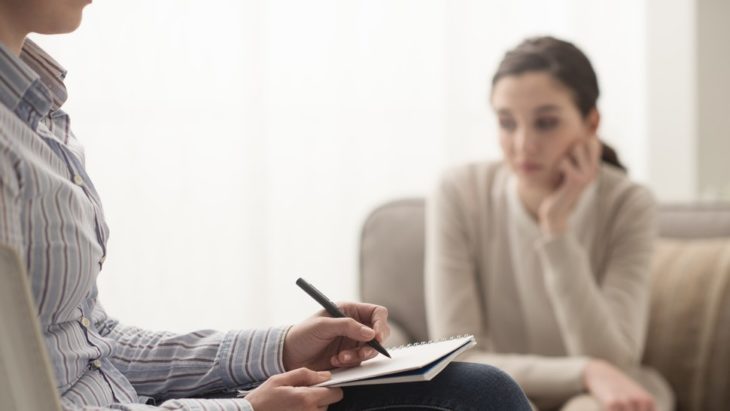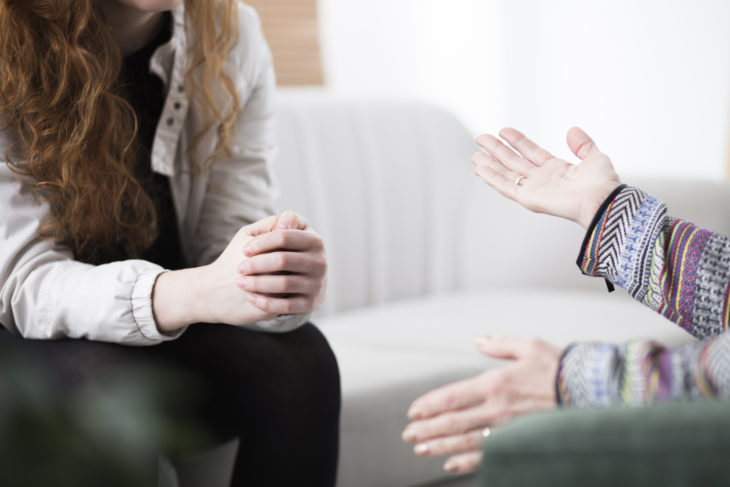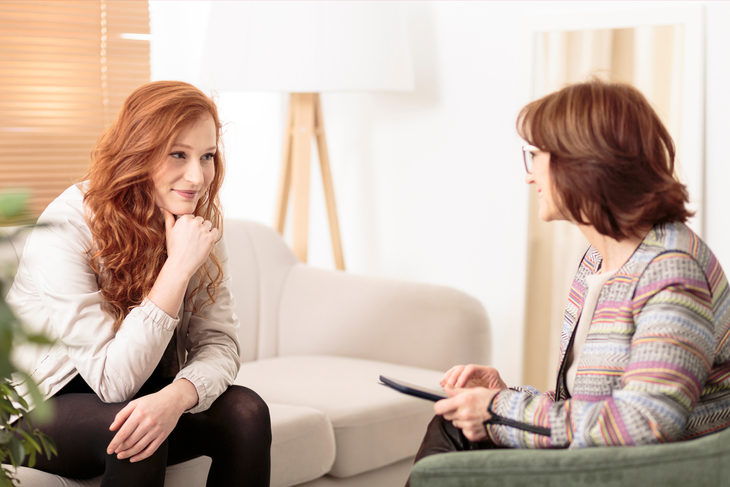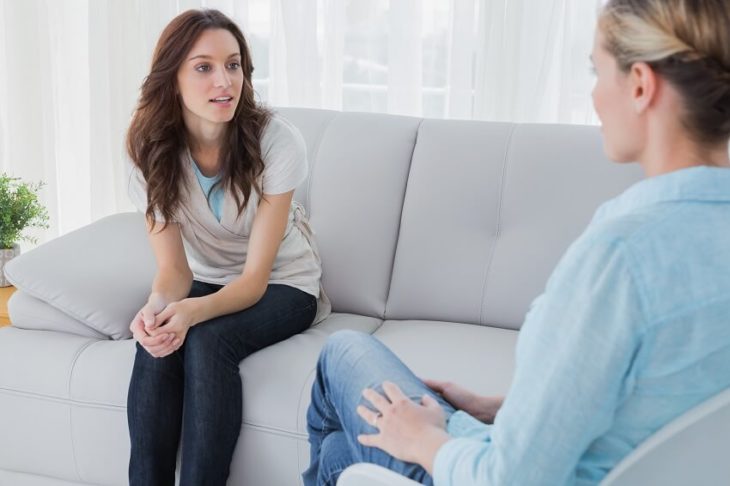I’m happy to report that I went to my first successful therapy session this week. When I walked into Lauren’s cozy New York City office, I felt immediately at home. Her couch was draped with one of those super-soft, faux fur blankets that’s just begging you to get naked and roll around in (I didn’t, for the record), and atop her coffee table were candles that smelled like cantaloupe, reminding me of the scent used to waft from my grandmother’s kitchen when I was a little girl. (Well, melon and cheese toast, but that’s neither here or there.)
We talked briefly about how I ended up in her “shrinking chair” as I like to call it, and she asked me to try and sum up my reason for being there and what I want to get out of our sessions in only two sentences. I like a challenge, so I thought for a minute before I gave her my answer.

Source: Bustle
“I feel like the relationships in my life— with certain friends, family members and men I’ve loved— have given me so much life, but have also taken a lot of life away from me. I want to be able to evolve as a person and in relationships without feeling constant pressure that things need to be perfect or that they’ll fall apart.”
We weren’t even 10 minutes into our session when I realized that Lauren pulled something out of me that I’ve never really noticed before. I’m a perfectionist in my relationships. I always knew that I was a perfectionist in life, but I don’t think I ever really recognized that my perfectionism was impacting my relationships, too. At least according to my subconscious, it was.
“Tell me more about what you mean,” she continued. “In relationships, do you think you always need things to be perfect?”
I had no idea if I did or not, and the dumbfounded look on my face must have done the talking for me.
“Okay, let me rephrase that,” she said, grinning. “Where do you think this constant feeling of pressure is coming from — that need to make your relationships ‘perfect’?”

Source: Bustle
This one, I could answer.
“I’m scared of ending up alone,” I confessed. “I have quite a few female family members who’ve been horribly betrayed and left heartbroken. They’ve been married, divorced and married and divorced again. I’ve seen them spend New Year’s Eve alone at home, watched them struggle as single moms and I can’t imagine waking up every morning in my old age to an empty house and not having someone I love to wake up to.”
I went into some more detail with her about my relationships, and soon “the tough stuff” was just flowing out of me. I told Lauren about the terrible trust issues I have and she vowed to help me with them. She told me that she couldn’t necessarily eliminate them completely, but that she wanted to help me have a relationship without feeling like I’m living with a constant rain cloud over my shoulder, ready to pour down on me at any minute. I liked that analogy. She also told me that she could help me tap into that fear and learn how to manage it if and when it arrives. Ultimately, she wasn’t saying she would “cure” me of my mistrust, but that she could help me to channel my anxiety, assess situations and my fears, and learn to move forward in a rational manner.

Source: Pinterest
Before I knew it, an hour had passed and the woman who was sitting before me knew more intimate details about my life than some of my closest friends. It wasn’t an easy session — I cried (a little bit), told stories of heartbreak, death and lost trust, but I sat in that chair feeling lighter than when I walked in.
Before I left, Lauren asked me how I thought our session went.
“We touched on some pretty fragile things,” she said. “How do you feel?”
I felt good. Really good. After one hour with this woman, I knew that our remaining time together wouldn’t always be the easiest — healing and growing never is—but that I wanted and needed this for myself and for the people in my life.
“I feel really good,” I said. “I’m looking forward to next time.”

Source: Pinterest
“So am I,” she said. “And I know that I can help you. You’ve already done one of the hardest things a person can do when they come to therapy, which leads me to believe that we’re going to make great progress.”
“Oh? What’s that?” I asked.
“You opened up to a complete stranger about your life and your feelings,” she said. “You know what you want, and that’s not always the easiest thing to put your finger on. And think of it this way: for someone who has trust issues in relationships, you and I just established a new relationship, and a very intimate one at that. You were able to open up to me and trust me with, basically your whole life. You should leave here knowing that we have some work to do, but that, because of your eagerness to change and willingness to share, we will get there.”
When I left Lauren’s office, my phone rang. It was my mom.
“How’d your first session go?” she asked.
Without giving away too much information or delving into the nitty gritty, I simply smiled as I walked to the subway and responded. “We will get there.”
Original by Dater X
